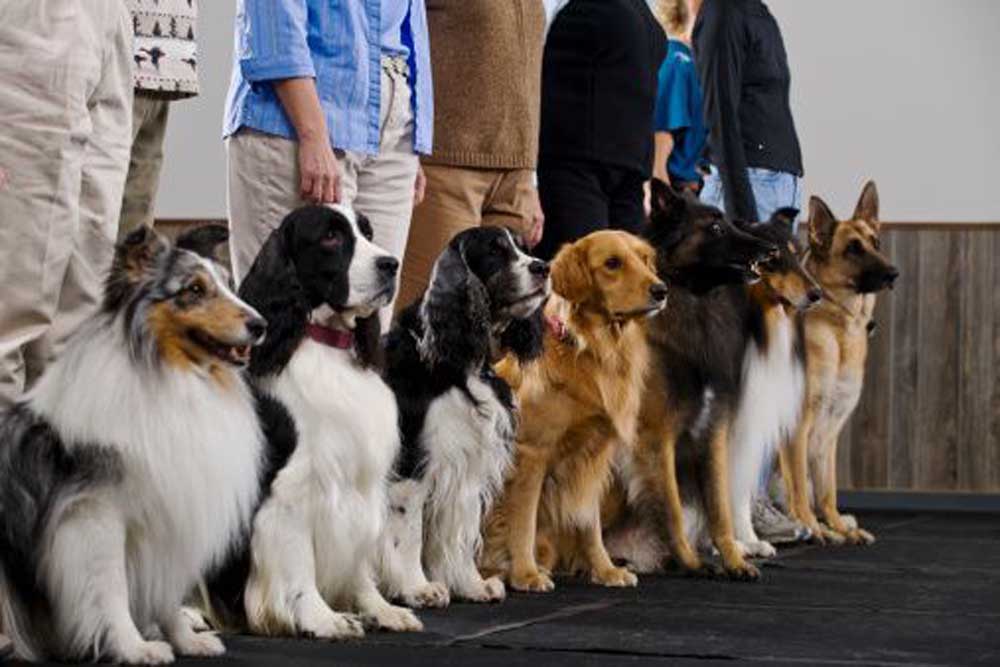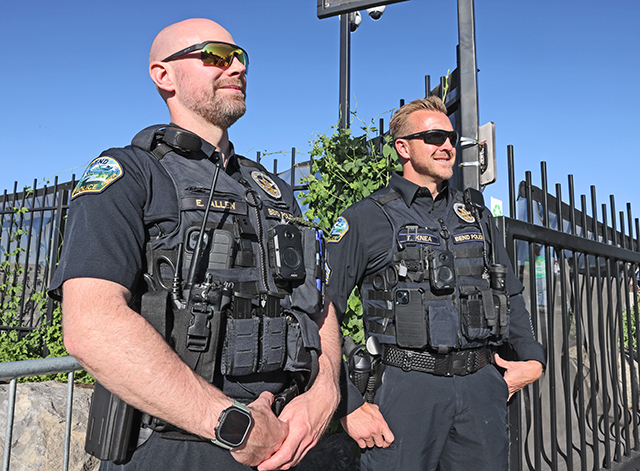Kennel cough outbreak has hit Bend for weeks
Published 12:00 am Sunday, August 7, 2016

- ThinkstockDogs
A nasty outbreak of kennel cough in Bend has left plenty of dogs suffering — some more than others.
Local veterinarians estimate the outbreak has been going on for about a month, and a summer influx of out-of-town canines in an already dog-dominated town has likely worsened the problem.
“It’s just highly contagious airborne,” Dr. Chad Moles, owner of Blue Sky Veterinary Clinic in Bend said Friday.
Kennel cough is an infectious bronchitis of dogs. It’s characterized by a harsh, hacking cough and sometimes gagging, which Moles said can sound like something is stuck in the dog’s throat. Dogs can start sneezing too. Dogs diagnosed with kennel cough must be quarantined to prevent spreading the disease.
Dr. Byron Maas at Bend Veterinary Clinic, who’s been here since 1991, said he’s probably never seen an outbreak this bad.
Jane Strell, of Bend, is a local real estate agent and dog owner. Her 2-year-old Doberman pinscher, Zoey, (whom she jokingly calls “a Doberwoman”) is just now bouncing back after her kennel cough advanced to pneumonia.
“She’s on the upswing, I mean really just today was the first time almost in a week that she was able to eat,” Strell said Friday.
Strell took her dog to the Animal ER Center early July 31 after it had a restless night with vomiting, gagging and trouble breathing.
The vet there found Zoey had kennel cough that progressed to bacterial and viral pneumonia and kept the dog on fluids and antibiotics at the hospital for 24 hours. Once discharged, her dog had no energy, Strell said.
“She’s just now turned a corner, and in fact she has her head on my lap right now,” Strell said. She’s glad her dog is better, but it came at a high price: about $2,700 in less than a week. Zoey will likely need more medication before she’s totally in the clear.
Different organisms can lead to kennel cough symptoms, including bordetella bronchiseptica, mycoplasma and parainfluenza. Moles said those are the most common in Central Oregon.
Dogs in close contact easily spread the disease by coughing or sneezing on each other at dog parks, kennels, dog shows, veterinary clinics, behavior classes, backyards — or anywhere else they are gathered.
Kennel cough is not dog flu, a specific disease Moles said hasn’t yet spread to Central Oregon. But in some ways, dog vaccines are like flu vaccines for humans.
Just because a dog has an up-to-date bordetella vaccine and or an up-to-date DA2PP vaccine (which includes parainfluenza) doesn’t mean it won’t get kennel cough, just like a flu shot for a human doesn’t guarantee against the flu.
“We don’t have the millions and billions of dollars to research what the strain is going to be in the next year,” Moles said.
So the strain of bordetella or parainfluenza in a vaccine could be different from the strain that’s going around; or the dog might have been incubating the infection before it got its shot. Maas said many of his patients with kennel cough have mycoplasma or streptococcus, for which there are no vaccines. Dogs that catch kennel cough usually incubate it between two days and two weeks before the symptoms show up.
Still, there’s a better chance dogs won’t get sick if their vaccines are up to date. Moles, and other local vets, Maas and Dr. Matt Wesley at Bend Animal Hospital, encourage owners to get their dogs vaccinated, especially since they can take a few days before your dog gets a good immune response.
“At this point I don’t see any signs of it (the outbreak) slowing down,” Moles said Friday.
He estimates he’s seeing about 25 dogs a week right now with kennel cough. Last year at this time, it was only about five. Based on how many dogs he’s seeing with the illness, Moles estimates Bend could easily have 300 new cases per week.
For the most part, secretions from sick dogs travel through the air, and other dogs breathe them in. But the sickness can spread through items such as food bowls, water dishes, toys and leashes, too.
Sometimes the kennel cough can go away on its own, but vets also can write prescriptions for cough suppressants, which help with symptoms, or antibiotics if the kennel cough has transitioned into pneumonia.
Wesley at Bend Animal Hospital said it’s rare for dogs to progress to pneumonia, like Strell’s Doberman did.
“But that’s why it’s smart to get it checked out by your vet once the coughing starts,” he said.
For Strell, the choking sound of kennel cough from a dog will always be remarkable. She’s keeping Zoey away from other dogs until she’s healthy again.
“Once you hear it, you won’t ever forget it,” she said.
— Reporter: 541-383-0325,
kfisicaro@bendbulletin.comEditor’s note: This article has been corrected. An earlier version of this article misidentified the vet center Strell took her dog to, due to incorrect information supplied to The Bulletin.
The Bulletin regrets the error.






